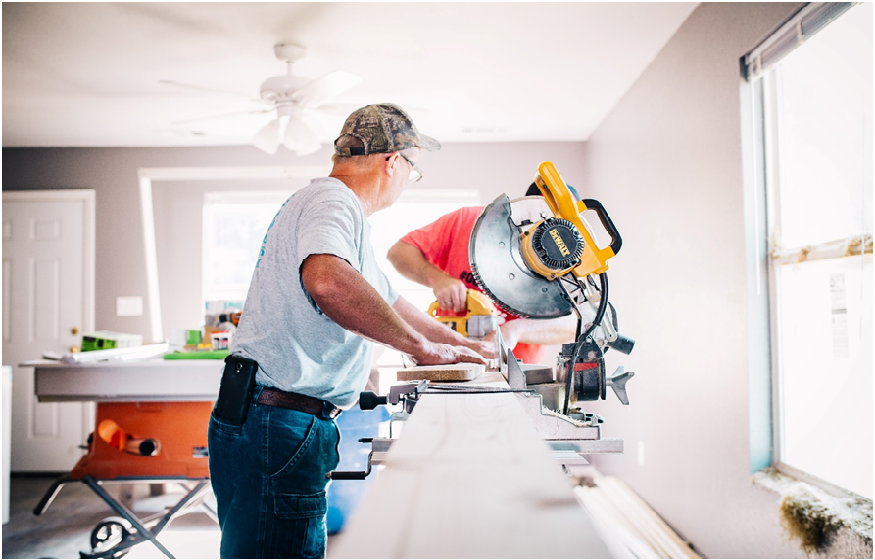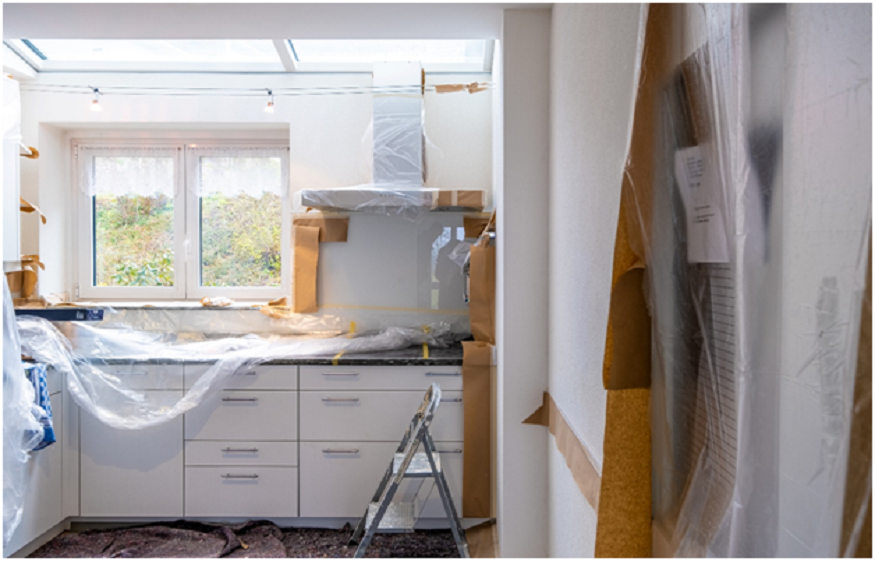Whether considering a big expense like updating your kitchen or fixing up your exterior, financing a home renovation can be daunting. Knowing the different options available to you when investing in a home improvement project is best so you can make the best decision for your situation.
People often talk about wanting to renovate because they want to improve their lifestyles. However, this is not true for all. Some may want their homes to be an asset that makes money for them. They can convert it into a pet and kid-friendly place they can rent to others. It’s also pretty common for others to do remodeling so they can get a higher price when they decide to sell.
Regardless of your reasons for doing a renovation, you might want to ask yourself how you will pay for this expense. When you know the overall costs, where to get the funds, and how to hire the right contractors, you can prevent headaches and expensive mistakes down the road. Here are some tips to help you out.
Saving Money on Renovation
When considering renovating your home, one of the most important things to do is budget for the project. There are several ways to save money on a renovation project, and below are some tips to get started.
- Start by doing your research. Obviously, the more information you have about the specific renovation you are planning, the easier it will be to save money. Do your research online and in magazines or newspapers. Look at the projects that are similar to what you want to do and get estimates on their costs.
- Look around your area for the right contractors. When estimating the cost of a renovation project, don’t just go with the first contractor who quotes you a price. Make sure to compare prices and quality before choosing a construction company. You may be able to find experts who offer lower rates, but they may be as skilled or experienced in a specific job.
- Use common sense when making decisions about your home. If something seems too good to be true, it probably is. Don’t let yourself be fooled by low-cost contractors or unproven ideas. Always use your best judgment when making decisions.
Where to Get Financing Options
There are many ways to finance these projects, and you’ll be able to find the right ones by doing some research. Some posts online will give you ideas on how to proceed with the project without any hassle.
- Use a home equity loan. This type is a good option if you have enough home equity to cover the home improvement project cost. The extra funds can be from a bank, credit union, or private lender. Interest rates on home equity loans vary, but some will give you a lower rate when you have an excellent credit score.
- Get a line of credit. A line of credit is a short-term loan that you can use to pay for expenses related to your home renovation, such as materials and contractors. You can get a line of credit from private financial institutions or banks. Just make sure to read the fine print before signing up for the agreement.
- Invest in property stocks or bonds. Some people get tax benefits and earn from stocks, bonds, and CDs to help fund their projects. The improvement in cash flow can help put money into the investors’ pockets, and they can use the funds for repairs, mortgage payments, and other costs of home ownership.
Other Tips to Know

- Start by assessing your current situation. Do you have enough equity in your home to cover the cost of the project? You may be able to borrow money through a bank or credit union. Or, if you have enough equity, you could take out a home equity line of credit.
- Think about what renovations would make your home more comfortable and functional for you and your family. Upgrading your windows to make them energy-efficient might be something you want to do for a long time. Others are maybe installing new insulation and replacing worn-out flooring. Knowing the costs of these things can save you in the long run.
- Consider partnering with a contractor who specializes in renovating homes. They will be able to provide you with an estimate for the project and also offer tips on how to save money on specific aspects of the home upgrades.
Common Types of Work Done in the Home
- Floor Installations: If your home has outdated flooring, consider switching to newer, more durable materials like tiles. This can improve the look and feel of your home and make it easier to clean.
- New windows and doors: If your home needs new windows or doors for weather protection or energy efficiency, you should consider investing in new equipment. New windows and doors can also increase your home’s perceived value, making it easier to sell.
- Modern kitchen appliances and hardware: If you’re looking to update your kitchen, you may be interested in upgrading to newer appliances and hardware. For example, newer dishwashers have more features than older models and may be more efficient. You can also find appliances with special features that make cooking or cleaning easier.
- Improved baths and showers: If your bathroom is outdated or small, consider upgrading to a larger bath or shower. These updates can make bathing and showers more comfortable and relaxing.
Different Financing Options
- Installments: You can get a loan with fixed or variable interest rates, with or without a down payment.
- Conventional loans: You can get a loan from a traditional bank or credit union. These loans have lower interest rates than other options but come with higher fees and longer terms.
- Refinancing: If you have good credit, you may be able to refinance your existing mortgage to get a more affordable rate and flexibility on the terms of the loan. Check out the site https://besterefinansiering.no/when you want to read more about home improvement projects and refinansiering. This might be the best option for you.
- Home equity loans: If you have enough equity in your home, you may be able to borrow money against that equity to finance your renovation project. Home equity loans are usually repaid over time, with lower interest rates than other types of loans.
- Debt consolidation: A debt consolidation loan will combine all or part of your current debts into one payment. This could help reduce your overall monthly payments and save you money in the long run.
Budget Tips
When planning for major property changes, it’s important to account for all the costs upfront. Here are tips for budgeting that may help you out:
- Estimate the total cost of your project – start with an estimate of how much you think it will cost and add on any unforeseen expenses. This will help you stay on track and plan your budget accordingly.
- Factor in financing options – there are many different ways to finance a home renovation, so it’s important to consider what’s best for you and your situation. Check with your bank or credit union to see if they offer special financing plans for home improvements.
- Make a list of necessary materials – before starting any work, list the materials you’ll need to complete the project, such as roofing materials, flooring materials, and paint colors.
- Set realistic deadlines – don’t try to do too much in one go. Breaking the project down into smaller tasks will make it easier to manage and stay on schedule.
When you are ready to start a home renovation project, there are a few things to keep in mind. The first thing is to get estimates from a trustworthy contractor that can help you find the best materials that are durable. You’ll want someone who has the experience and expertise to get the job done right and who will be able to provide honest estimates so that you can budget your funds appropriately.
Next, make sure you have enough money set aside for the project. It’s worth noting that even the small upgrades can add up over time. Be prepared for unexpected expenses because many home renovations come with hidden costs like permits or inspections, which may require upfront financial investment on your part. It’s always a good idea to consult your bank or a private financing institution for options.


